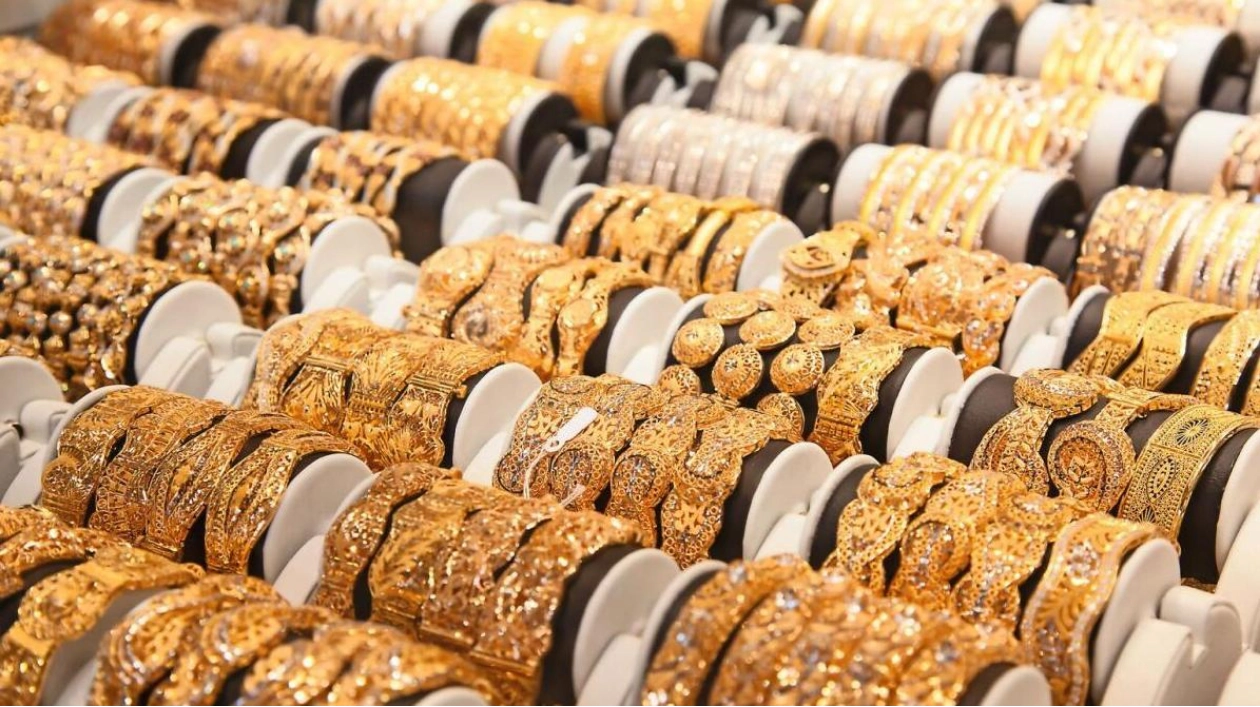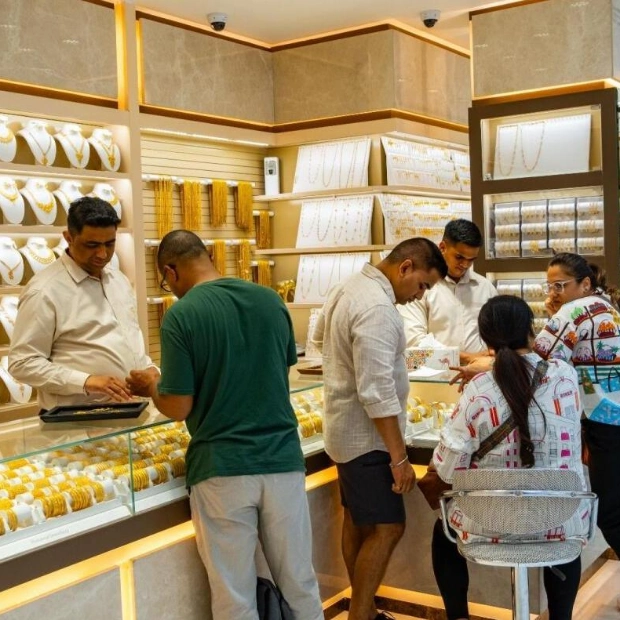Purchasing gold and jewelry remains more cost-effective in Dubai compared to India, even after New Delhi reduced the import duty on gold and silver to 6 percent from 15 percent.
"Even with the decrease in import duty, it's projected that gold prices in Dubai will still be 5-6 percent lower than in India," stated Shamlal Ahamed, managing director for international operations at Malabar Gold & Diamonds. He noted that both residents and tourists, including Indian consumers, favor Dubai for buying gold jewelry. "With the reduced import duty, price-sensitive Indian customers might reconsider their choice of destination for gold shopping. However, Dubai's reputation as a global jewelry hub, known for its extensive and unmatched collection of jewelry designs from around the world, remains unchallenged. This diversity in designs, which is not readily available in India, will be a crucial factor for Indian jewelry buyers," Ahamed explained.
Nirmala Sitharaman, India's finance minister, announced the reduction in gold and silver import duty during the Union Budget 2024-25 presentation on Tuesday. Vijay Valecha, chief investment officer at Century Financial, also confirmed that buying gold and jewelry in Dubai would still be cheaper than in India, even after the duty cut. Industry insiders generally agree that gold and precious metal jewelry prices were about 15 percent cheaper before India's recent duty reduction.
"Retailers who buy gold in the UAE and export it to India are set to benefit, as historically, import duties have been a significant part of the cost," Valecha added. He provided an example, stating, "If someone wants to buy gold worth $100 in the UAE, upon arrival in India, it would have previously cost about $115 and now about $106, including customs duties. However, if purchased in India, the same quantity of gold would cost about $112-115. Thus, gold remains cheaper in the UAE and more expensive in India."
John Paul Alukkas, managing director of Joyalukkas Group, said the reduction in import duty has made buying gold in India cheaper. However, he noted that Dubai remains a more attractive market for gold purchases due to its wide range of options and tax-free shopping environment. "Indian consumers must also consider travel and related expenses when making this purchase decision. Often, customers visit Dubai for leisure and take the opportunity to buy gold during their trip," Alukkas said.
Alukkas further explained that the decrease in duty might narrow the price gap between India and Dubai, potentially affecting gold purchases in Dubai by Indian buyers. "Nonetheless, we believe Dubai's established reputation as a global jewelry hub and its diverse offerings will continue to attract buyers despite this change," he stated. Alukkas added that while the reduced duty might influence some purchasing decisions, it is too early to predict a decline in demand. "Time will reveal whether these reductions will directly affect demand fluctuations."
Alukkas does not expect Indian tourists to reduce their jewelry purchases in Dubai after the price gap narrowed, as he believes price is not the only factor influencing gold jewelry purchases. "Dubai continues to be the top destination for gold shoppers due to its competitive prices, high quality, and unique designs. Indian tourists can also enjoy tax-free shopping and access to exclusive collections that may only be available here," he noted.
According to the Global Trade Research Initiative, India's gold and silver imports from the UAE surged 210 percent to $10.7 billion (Dh39.2 billion) in 2023-24. The World Gold Council reported a significant increase in imports of platinum alloy containing over 80 percent gold from the UAE. Importers are taking advantage of the lower import duty on platinum alloy under the UAE-India Comprehensive Economic Partnership Agreement (CEPA), where the duty is 5 percent, compared to 14 percent for gold from the UAE. Media reports indicate that 13 tonnes of platinum alloy were cleared by customs in the four weeks since mid-June, surpassing the total imports of 9.9 tonnes in 2023.
Shamlal Ahamed said the reduction in import duty is a significant step in combating illegal gold imports to India. "Customers will benefit from the attractive prices on legally sourced gold, leading to greater market growth for organized jewelry retailers in India. This should also accelerate growth and create a more transparent and efficient jewelry sector. Ultimately, this move will significantly boost the Indian economy," Ahamed concluded.






